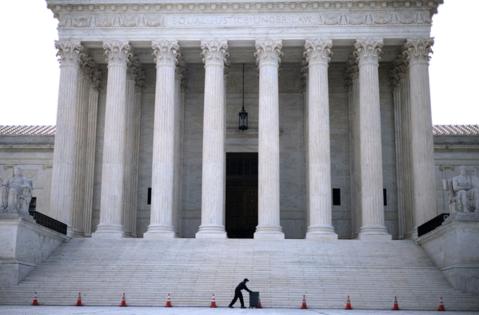Supreme Court ruling on Trump immunity could alter impeachment
Published in Political News
WASHINGTON — How the Supreme Court rules on presidential immunity in former President Donald Trump’s effort to jettison his federal charges could have some collateral damage: Congress’ impeachment power.
At oral arguments in the case Thursday, Trump attorney D. John Sauer told the justices that the nation’s founders decided impeachment was the check on a president’s behavior in office — and not criminal prosecution.
But several justices and outside experts said Sauer’s arguments, taken together, laid out a diminished version of impeachment power, which normally allows Congress to remove a federal officer for treason, bribery or other high crimes and misdemeanors.
That rarely invoked power, used about two dozen times in the nation’s history, should instead have special rules for presidents, Sauer said.
Sauer told the justices that presidents could only face criminal charges once they are impeached and convicted in the Senate. At the same time, he said such a prosecution could only happen under criminal statutes that make a “clear statement” to explicitly include the president.
Justice Sonia Sotomayor said that argument “would bar the Senate from impeaching him for high crimes or a misdemeanor, because that means that he’s not subject to the law at all.”
“That’s a tautology you can’t escape,” Sotomayor said.
Michael Dreeben, arguing on behalf of Special Counsel John L. “Jack” Smith, told the justices that the argument could prevent criminal prosecution of a former president just because of timing.
If a president committed a crime near the end of their term, Congress may not be able to “crank up the machinery” in time to impeach, Dreeben said, and it’s an open question about whether presidents can be impeached after they have left office.
Gregg Nunziata, the executive director for the Society for the Rule of Law, said Trump’s lawyers construed both the impeachment clause and federal criminal law in a circular fashion that eviscerates both.
...continued
©2024 CQ-Roll Call, Inc., All Rights Reserved. Visit cqrollcall.com. Distributed by Tribune Content Agency, LLC.







Comments